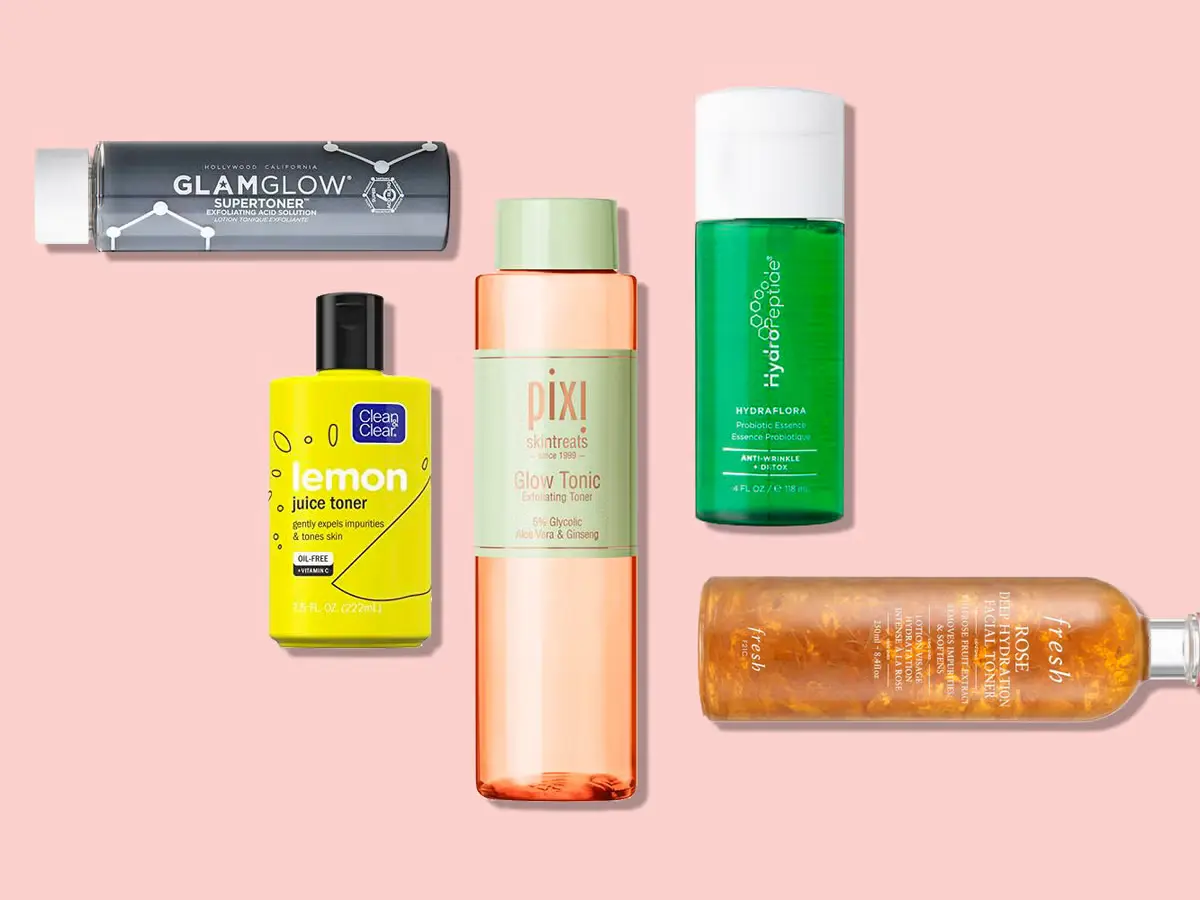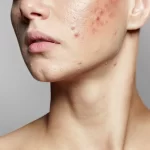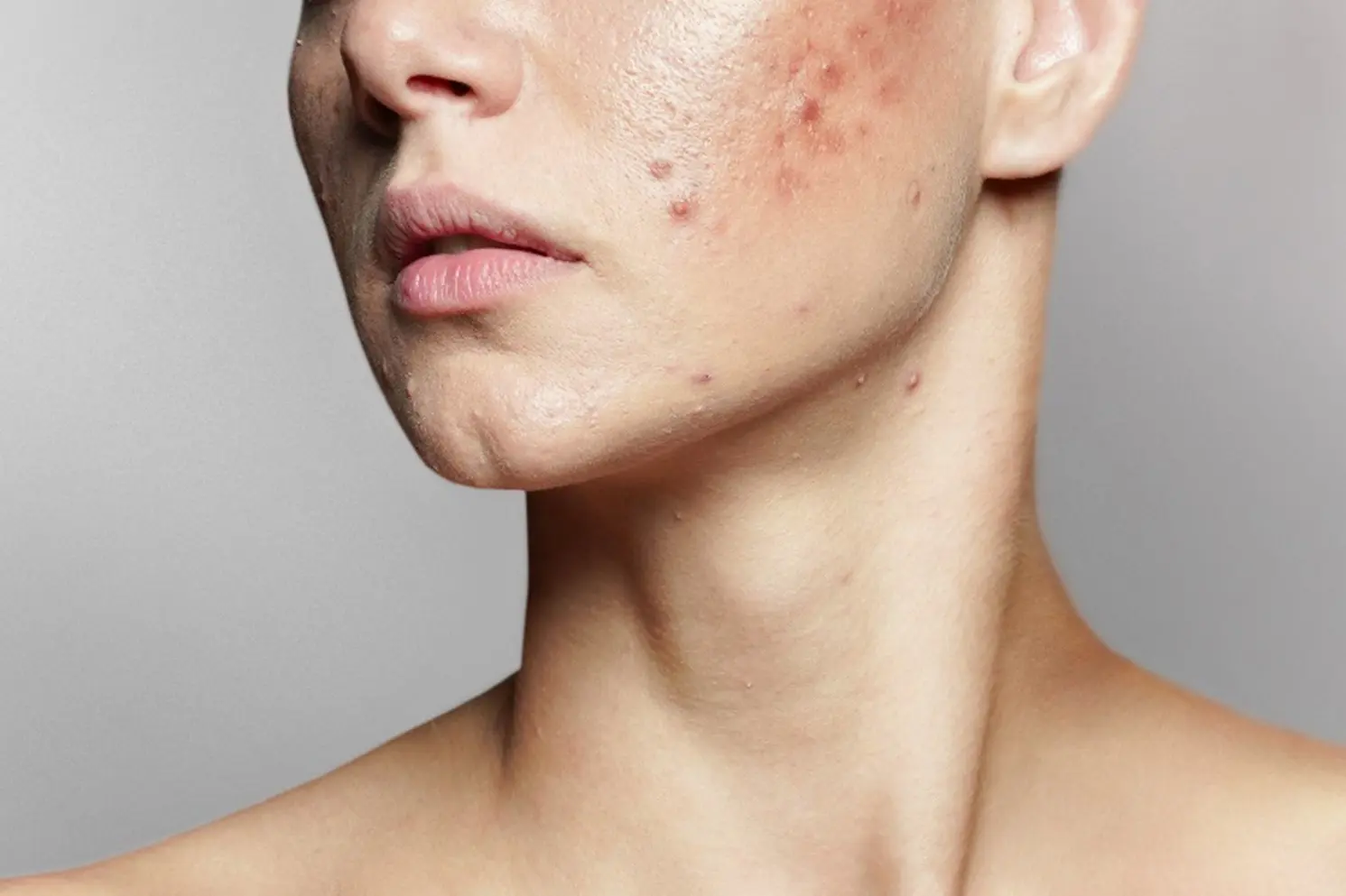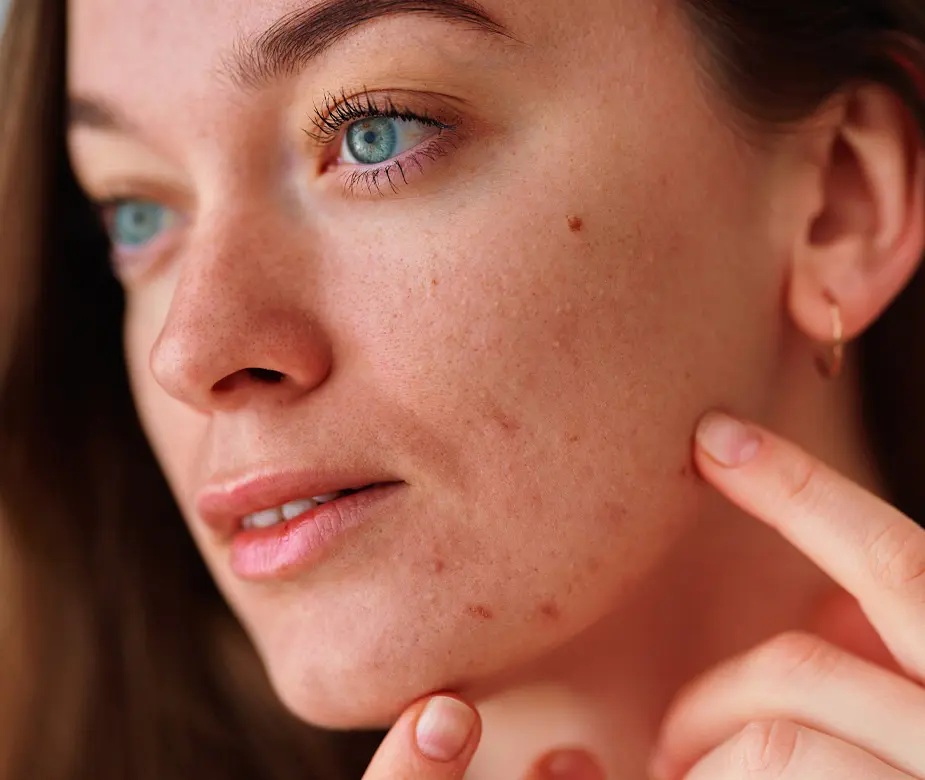At DermOnDemand, patients often ask Dr. Alicia Atkins about the role of a dermatologist-recommended toner in a skin care routine. A facial toner is not just a splash of liquid – it is a step designed to balance, protect, and prepare the skin for active ingredients.
This guide explains what toners do, how to choose the right type for your skin type, and when professional advice matters.
Key Takeaways
- Dermatologist-recommended toners are modern, alcohol-free formulas designed to hydrate, gently exfoliate, and prepare the skin for the absorption of active ingredients.
- The best toner depends on skin type – hydrating toners for dry skin, exfoliating acids for oily or acne-prone skin, and soothing botanicals for sensitive or combination skin.
- Safe use requires applying toner with clean hands or a cotton pad, avoiding overexfoliation with exfoliating acids, and selecting fragrance-free products whenever possible.
- Dermatologists like Dr. Alicia Atkins stress the importance of reviewing ingredients, avoiding harsh formulas, and seeking professional guidance if irritation or persistent issues occur.
- DermOnDemand offers personalized online dermatology plans, providing expert recommendations and prescriptions within 24 hours for patients seeking tailored skincare solutions.
Best Dermatologist-Recommended Toners by Skin Concern
For acne-prone skin
The best toner for pimple-prone skin should contain salicylic acid. This ingredient clears clogged pores and prevents breakouts. Regular use can reduce excess oil and keep acne under control.
- Paula’s Choice Skin Perfecting 2% BHA Liquid Exfoliant – Contains salicylic acid to unclog pores and reduce breakouts.
- La Roche-Posay Effaclar Clarifying Solution Toner – Combines salicylic acid and glycolic acid to exfoliate acne-prone skin gently.
For oily skin
For oily skin, look for witch hazel, niacinamide, or light exfoliating acids. These reduce shine and support a balanced complexion. Dermatologists often pair them with oil-free moisturizers.
- Kiehl’s Blue Astringent Herbal Lotion – Balances excess oil with menthol and camphor.
- The Ordinary Glycolic Acid 7% Toning Solution – Helps reduce shine and refine pores with chemical exfoliation.
For dry skin
The best toners for dry skin focus on hydration. Key ingredients, such as aloe vera and hyaluronic acid, replenish lost moisture. Using a cotton pad helps press these into the skin without irritation.
- Thayers Alcohol-Free Rose Petal Witch Hazel Toner – Aloe vera and witch hazel hydrate without irritation.
- Laneige Cream Skin Toner & Moisturizer – Rich in amino acids and hydrating ingredients for deep comfort.
For sensitive skin
Sensitive skin needs calming formulas that avoid alcohol and fragrance. Soothing options with chamomile or oat extract protect the barrier. These prevent irritation during a daily skincare routine.
- Avene Gentle Toning Lotion – Alcohol free and fragrance-free, designed for delicate skin.
- Bioderma Sensibio Tonique – Lightweight, soothing toner that reduces redness and irritation.
For combination skin
Combination skin requires balance. Toner formulas with light hydrating ingredients and gentle acids target both dry patches and oily areas. This keeps the skin feeling even throughout the day.
- Pixi Glow Tonic – Contains glycolic acid for exfoliation plus aloe vera to hydrate dry patches.
- Clinique Clarifying Lotion 2 – Balances oil in the T-zone while keeping cheeks comfortable.
For mature and aging skin
A toner for mature skin should include antioxidants and peptides. These address fine lines, loss of elasticity, and uneven tone. With regular use, they support firmness and a smoother texture.
- IS Clinical Pro-Heal Serum Advance+ (used as a toner step) – Vitamin C and antioxidants help reduce fine lines and improve tone.
- Estee Lauder Micro Essence Skin Activating Treatment Lotion – Targets firmness and radiance for aging skin.
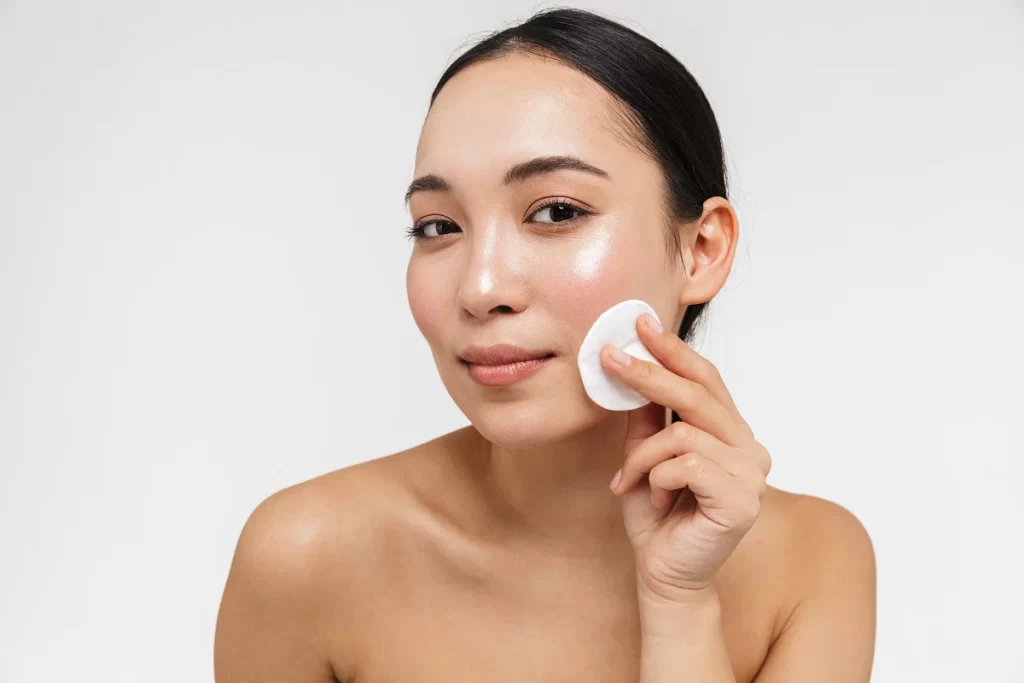
Do Dermatologists Recommend Toners?
Dermatologists often recommend toners that contain proven, skin-safe ingredients. Modern formulas are alcohol free and designed to hydrate, gently exfoliate, or calm the skin. This makes them different from the harsh, drying products of the past.
Do facial toners really work?
Yes, facial toners are effective when they are matched to your skin type and concerns. A hydrating toner adds moisture to a dry face, while an exfoliating toner can clear clogged pores. Used with a cotton pad or applied by hand, they improve absorption of other products.
What is the best recommended toner?
The best recommended face toner depends on your needs. Someone with oily skin may benefit from witch hazel or salicylic acid, while a person with dry skin might need aloe vera and other hydrating ingredients. A dermatologist helps identify the best fit for each patient.
Key Benefits and Ingredients
Hydrating toners for dry and sensitive skin
Hydrating toner formulas include hyaluronic acid, glycerin, and aloe vera. These hydrating ingredients help reduce the feeling of tightness after cleansing. A toner for dry or sensitive skin restores comfort and prepares the face for moisturizer.
Exfoliating acids for acne and oily skin
Toners with salicylic acid or glycolic acid can gently exfoliate. They remove dead cells, unclog pores, and reduce breakouts. This makes them effective in a skin care routine targeting acne or oily skin.
Soothing botanicals for combination skin
Combination skin benefits from botanicals like green tea or chamomile. These calm irritations while balancing oily and dry areas. Patients often report fewer flare-ups and a more even texture.
Toner for glowing skin
A glowing result comes from toners that combine hydration and mild exfoliation. Products with niacinamide or lactic acid can brighten and improve dull tone. When used consistently, they reduce dark spots and enhance radiance.
Ingredients dermatologists advise avoiding.
Dermatologists advise avoiding high-alcohol content and heavy fragrance. These can dry out the skin, cause redness, or worsen fine lines. A fragrance-free formula is a safer choice for most patients.
Another Toner Options
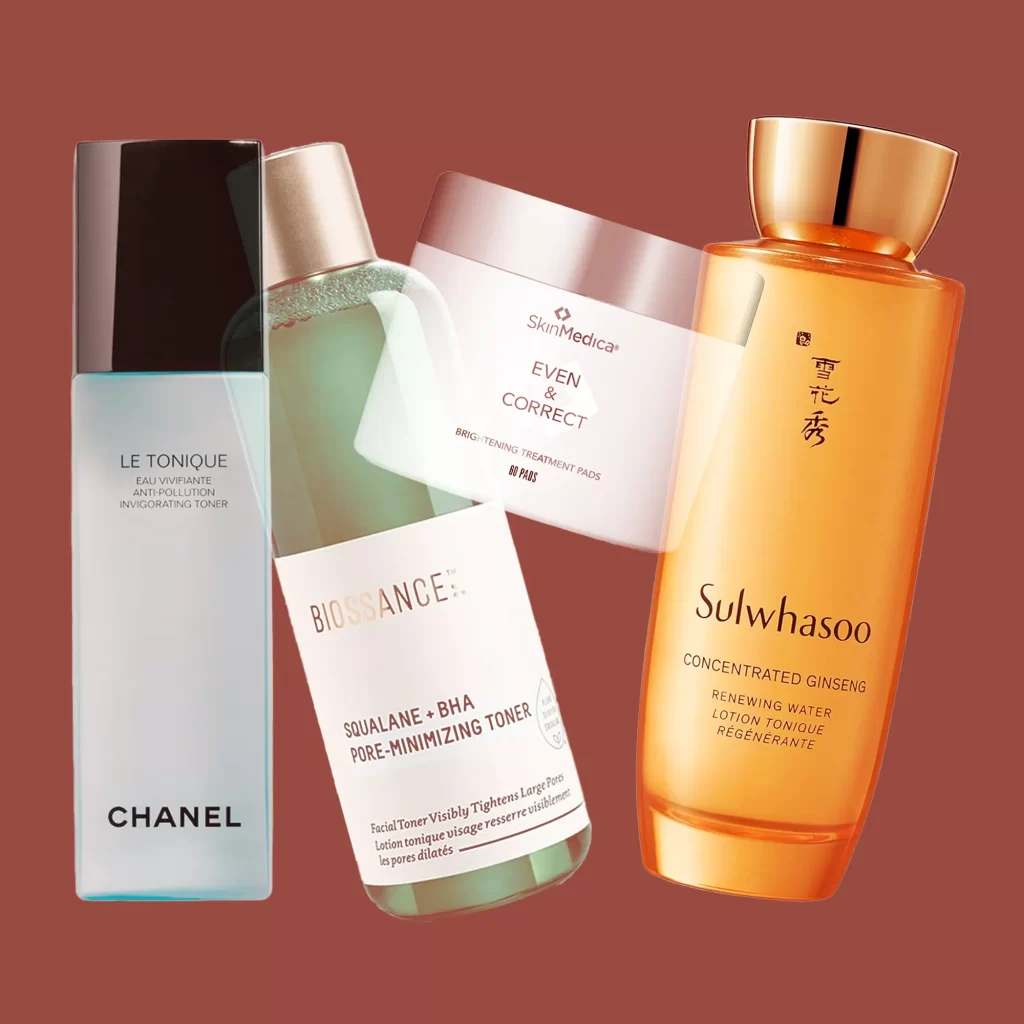
Toner pads vs. liquid toners
Toner pads are pre-soaked and convenient for travel. They help gently exfoliate while applying active ingredients evenly. Liquid toners, applied with a cotton pad or by hand, offer flexibility and can be layered more easily.
Best toner for skin whitening
For patients concerned with dark spots, dermatologists recommend brightening toners. These often contain glycolic acid, vitamin C, or licorice extract. They lighten discoloration and improve overall clarity.
How to Use Toners Safely
Step-by-step application guide
- Cleanse your face gently.
- Apply toner with a cotton pad or clean hands.
- Let it absorb fully before the moisturizer.
- Follow with sunscreen during the day.
Common mistakes to avoid
Avoid using multiple exfoliating toners in one skincare routine. Mixing strong active ingredients can irritate the skin. Overuse of alcohol-based toners can also exacerbate dryness.
Can you use toner every day?
Yes, most toners are safe for daily use. Hydrating toner formulas can be used morning and night. Exfoliating options may be best a few times a week, depending on your skin type.
When to See a Dermatologist for Toner Advice
See a dermatologist if you experience persistent irritation, breakouts, or worsening dark spots after using toner. A professional can adjust your skincare routine and prescribe targeted treatments to address your specific needs. At DermOnDemand, cases are reviewed by a board-certified dermatologist within 24 hours.
Start Your Online Dermatology Plan
A dermatologist-recommended toner can elevate your skin care routine when chosen wisely. DermOnDemand offers direct access to Dr. Alicia Atkins and her team for expert guidance, safe prescriptions, and personalized treatment. Start your online dermatology plan today and receive care designed for your skin type.


